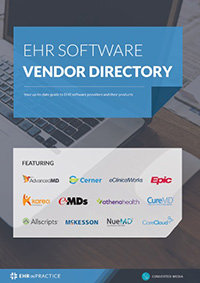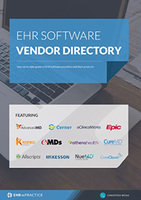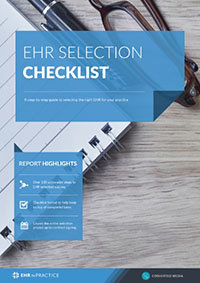Three pitfalls of interoperable EHR systems
The interoperability of health IT systems presents one of the persistent problems the government has tried to overcome since rolling out regulations to encourage providers to adopt EHRs. The full interoperability of medical information has been deemed the holy grail of modernizing medical record keeping and decision making implying that this goal may not be readily achievable or even fully realized under the worst-case scenario. In the push toward interoperability, what pitfalls can practices expect when choosing an EHR that claims to excel in data sharing.
1. Assumption that other vendors will fall into line with interoperability.
One of the ironies found in the government’s push for EHR interoperability is the fact that data sharing is counter intuitive to the market position of some vendors. Therefore, one should not assume that in a matter of years all platforms will be compatible with data generated from your system.
Recommended reading: find interoperable EHR software for your practice with our completely up-to-date EHR vendor directory.
With the push toward EHR adoption, the EHR market responded with a massive rush of vendors offering an array of products. In this rush to gain a foothold in the market, vendors did not (logically so) spend a great deal of time worrying if their product was interoperable with a competitor product. When looking at these data one is struck by the high level of competition in the EHR market which has also lead to a significant disincentive for interoperability despite the government's efforts to encourage vendors to emphasize information sharing.
2. Open APIs provide a viable option but come with risk.
HER vendors have begun to warm up to the use of an open application programming interface (API) to communicate with other devices or EHRs to share information. An open API refers to a program interface that allows a third party a developer with access to a proprietary software application, therefore allowing the third party to access internal data. Thus, interoperability through an API is achieved through an add-on that assists a third party device access data on an EHR.
The primary concern about open API systems rests in their security. As internal patient data is accessed by third party software security problems, it could either be created or exploited.
3. Oversimplification of EHR interoperability as just data exchange.
Interoperability is not simply the exchange of data rather it is the exchange of usable data. Therefore, two systems that can talk to each other should be viewed as the first step, not the end goal. If data cannot be meaningfully incorporated into an EHR, its value to practice is limited.
An article published in Modern Healthcare illustrates the case of a hospital whose EKG monitors provided data to its EHR, albeit in an unusable form. The EKG monitor was talking to the EHR however, it only sent digital image files which could not be utilized in the EHR as numerical data to track heart function. In this sense, one should not lose track of the multifaceted nature of interoperability.
Despite the current doom and gloom concerning the interoperability of some EHRs on the market, do offer the ability to share information either with mobile devices or with other EHRs. However, given the fact that this functionality is the exception to the rule in the EHR market, one should expect some problems to surface with interoperable systems. However as technology develops and the market comes around to interoperability conditions should become more favorable to the sharing of usable medical data.
Free white paper

EHR Vendor Directory
Get the most up-to-date directory of EHR software vendors. Find the best software for your practice.

Featured white papers
Related articles
-

EHR interoperability challenges and solutions
Why EHR interoperability is important, and how to improve it
-

How your EHR can help you avoid medical errors
How effective EHR use can help your practice in reducing medical error
-

The pros and cons of a standalone EHR system
No chosen form of health IT will come without some difficulties, but what are the advantages and ...



